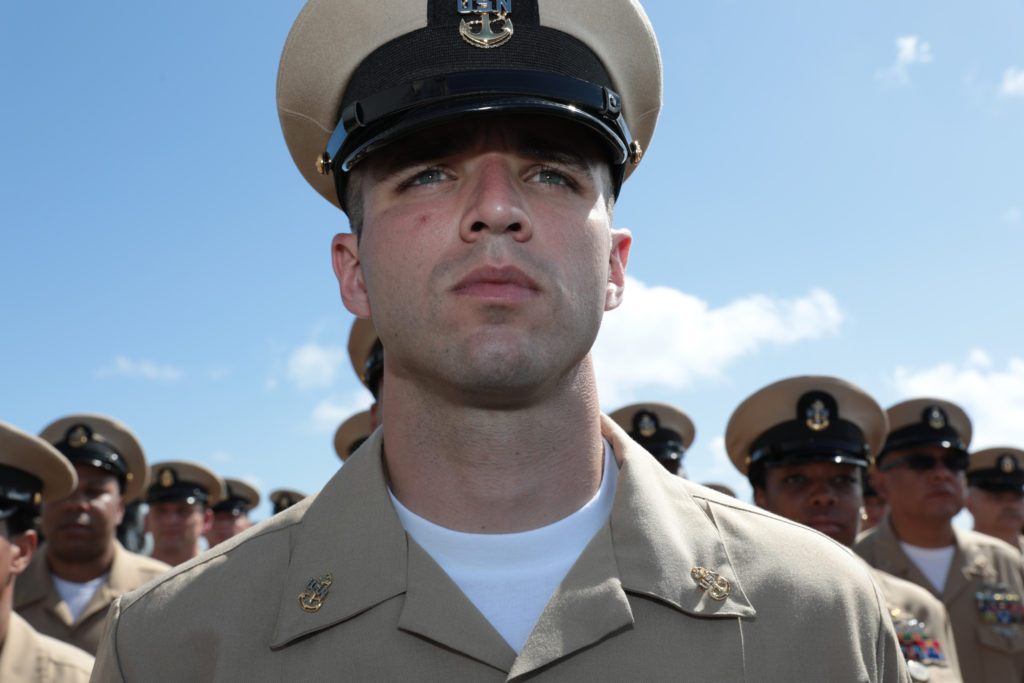4 Tips to Prepare For Campus As a Student Veteran

We’re not going to say that making the transition from the military to campus is going to be smooth sailing. (Especially if you aren’t preparing for it.) However, if you actively take strides to prepare for the transition, you will succeed. Guaranteed. Invest in your future by preparing for it, and you’ll pave the way for accomplishing your goals.
The four strides that you can take to prepare for campus & succeed as a student veteran…
1. Choose a school that will best suit your lifestyle & needs.
Enrolling in just any program at any institution is not going to work. Researching different types of schools and deciding what is best for you, your family, and the lifestyle you want while getting your degree is the best way for you to find the best match. Is there a specific way for you to search through universities and colleges and their assistance programming for student veterans? Yes, yes there is.
This resource will be your best friend as you search through schools. You can truly get the best picture of whether or not a school is military-friendly by using this tool. (The best part is that the only schools in the database are not-for-profit schools. Why? Because for years, for-profit colleges & universities prey on GI Bill users because their tuition dollars are federally funded. The worst part is that many times those schools aren’t giving students a quality education where they can go and be gainfully employed after graduation.)
Other questions you’ll need to answer for yourself are the following: Is a traditional degree program for you? Is attending classes on campus a possibility or is an online degree program the only way you can make this work? Succeeding as a student veteran can only happen if you set goals out ahead of you. How do you set goals? Sit down and think about the life you are crafting by enrolling in a degree program.
2. Mentally Prepare
There isn’t going to be a higher ranking personnel in your chain of command who tells you where to be and what to do on a day to day basis. Furthermore, there isn’t going to be someone on campus who is going to lay it out for you and tell you which classes to take when. You have to mentally prepare for the fact that you are given the freedom and luxury of planning your schedule the way you want it. However, that also means that it’s your responsibility. Your college counselor can help a great deal on this front, but you have to ask for assistance. Our advice: Set up regular meetings with your counselor to stay in communication and on top of your academic progress through completing your degree program. This will only help you to succeed as a student veteran.
3. Seek out other veterans
Going at this alone won’t do you any favors. Having a group of like-minded individuals to support and bounce ideas off of each other is crucial to success. We suggest seeking out an institution with a Student Veterans of America chapter (or at least some form of student veteran club). Over the years, institutions with SVA chapters have helped student veterans to connect to campus, one another, and succeed in their degree program. How do you know if the schools you are considering have SVA chapters? Check out the school’s profile here to get all the details about the military assistance programs they have in place.
4. Take Advantage of Resources
There are loads of programs for helping and supporting veterans & military on campus. The problem is that many students who qualify for these programs don’t take advantage of them. These programs have been created and put in place to fill some sort of void in the system for military-affiliated students. They were deemed necessary enough for loads of people to put time, energy, and money into establishing them. None of these resources are a waste. Do yourself a favor and explore all of the opportunities and resources you have at your institution. You won’t regret it.
At the end of the day, preparation is crucial. Best of luck as you prepare for one of the biggest and most rewarding transitions of your career!
About the author
Julie Provost is a freelance writer, and blogger. She lives in Tennessee with her National Guard husband and three boys.

